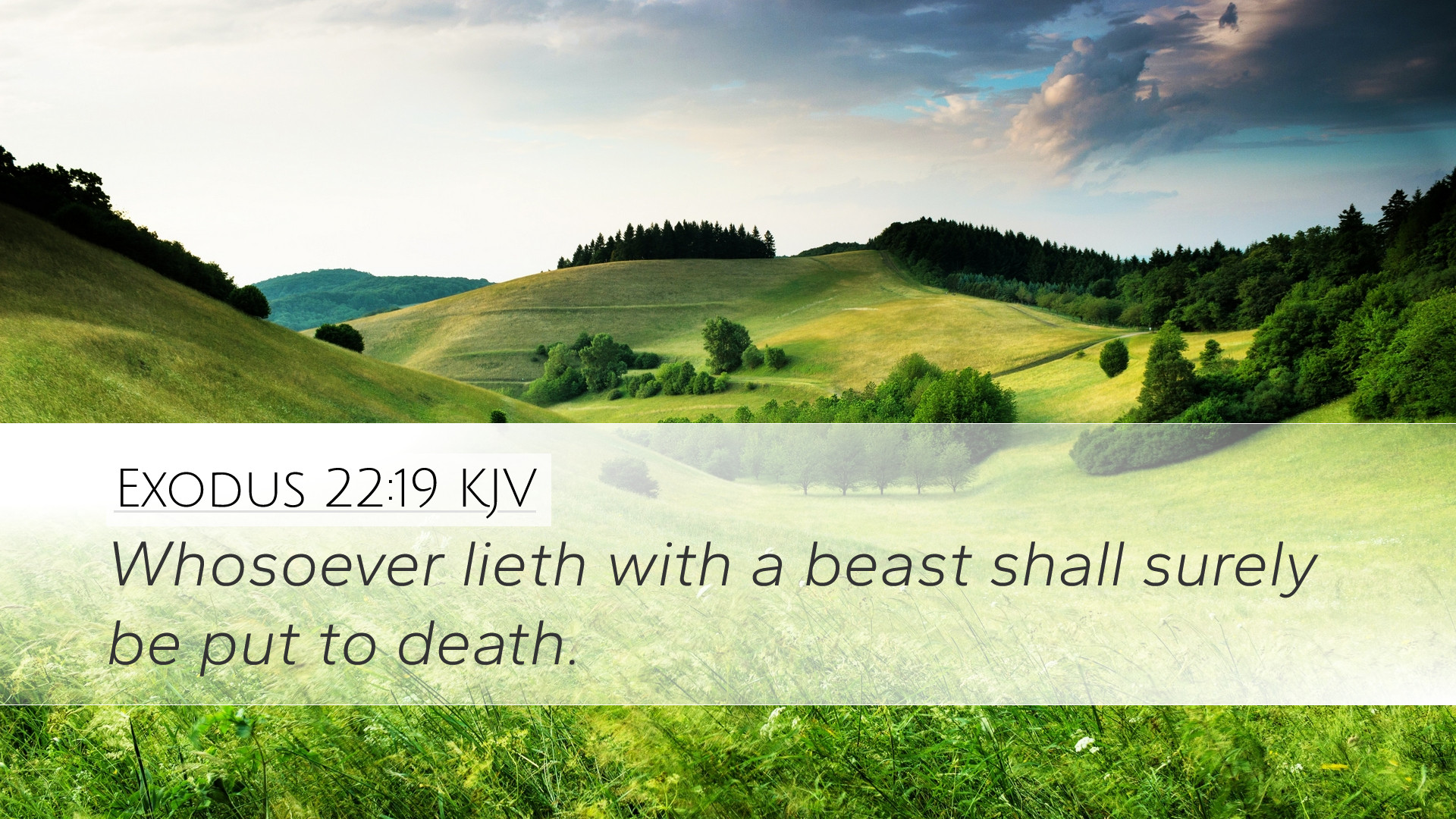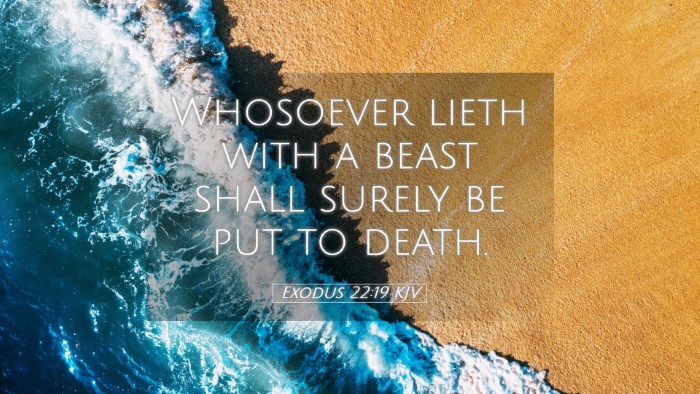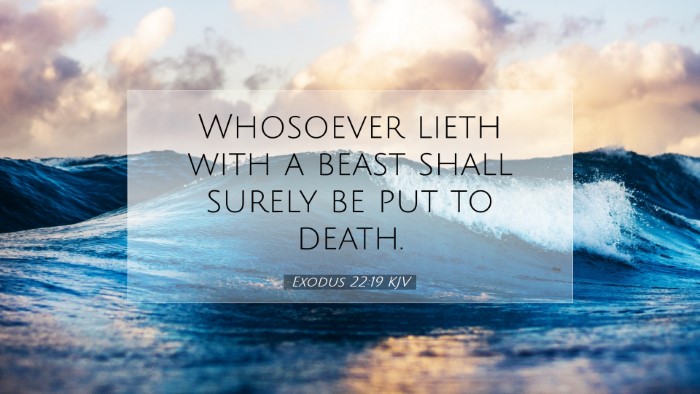Exodus 22:19 Commentary
Bible Verse: Exodus 22:19
"Whoever lies with an animal shall surely be put to death."
Introduction
This verse from Exodus 22:19 is a critical part of the broader legal framework that God provides to the Israelites. It emphasizes moral conduct, particularly in areas that are deemed perverse and unacceptable. This commentary synthesizes insights from public domain sources to aid pastors, students, theologians, and Bible scholars in understanding the implications of this verse.
Historical and Cultural Context
The laws of Exodus were given in a specific historical context. Understanding the culture of ancient Israel and surrounding nations helps us appreciate why such laws were instituted. In many ancient societies, various forms of sexual immorality were rampant, and this law stands in stark contrast to those practices.
Albert Barnes notes that these laws were designed to be strict to maintain the sanctity of the created order and the distinctiveness of Israel as God's chosen people.
The Moral Foundation
At the heart of this law lies the principle of morality that God established for His people. Matthew Henry stresses the importance of upholding purity and holiness in all aspects of life. He suggests that the gravity of bestiality defies the created nature of animals and impacts human dignity profoundly.
This is not only an issue of moral failing but also reflects upon society's values, indicating a breakdown of natural order and tainting humanity's relationship with God.
Punishment and Consequence
The severe punishment prescribed—death—serves multiple purposes:
- Deterrent Against Sin: Adam Clarke notes that a stringent penalty discourages individuals from engaging in heinous acts and establishes the seriousness with which God views such offenses.
- Protection of Society: The law seeks to protect the moral fabric of society, keeping it from the influences of perversion and depravity that can lead to social chaos.
- Reflection of Divine Justice: The death penalty reflects the holiness of God. As Clarke highlights, God’s laws reveal His nature, emphasizing that some sins incur greater consequences due to their severity.
Theological Implications
This verse brings forth significant theological insights. It illustrates God's concern for ethical conduct among His people. The gravity of the sin reflects God's overarching sovereignty and authority over life and moral order.
Henry points out that such laws were integral not only for maintaining order but also for fostering a deeper understanding of sin and its consequences. This became an experiential teaching tool leading to the eventual understanding of grace through Christ.
Application for Contemporary Christian Life
Although society today may not legislate against such offenses explicitly, the underlying principles remain relevant. The call to holiness, the protection of integrity, and the acknowledgment of the consequences of sin transcend cultural boundaries.
In pastoral contexts, these insights direct leaders to foster purity, both personally and corporately. They are called to create environments where individuals uphold ethical standards reflecting their commitment to Christ's teachings.
Conclusion
In conclusion, Exodus 22:19 serves as a solemn reminder of God's standard for morality. By examining the intended moral, social, and theological implications of this verse, we engage with the depths of God’s justice and righteousness. As we reflect on this command, may we strive for purity, understanding God’s design for human relationships, and pursuing His holiness in our lives.


